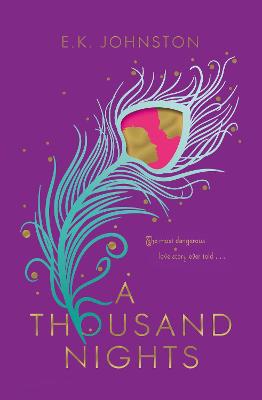A Thousand Nights is an interesting piece, slow-paced and thoughtful, rather complex. It’s a retelling set in the pre-Islamic Middle East. Demons, who are most likely djinn, inhabit the desert, taking from mortals as they see fit. One of them has become discontented with that life and possessed a king when the opportunity arose. Once in control, he allows the king to remain in one tiny part of the mind, forcing him to live powerlessly in audience to the demon as he takes and kills wife after wife.
Like the original, it is a lyrically beautiful. Also like the original, it paints women as worthless chattel, little more than garbage to be taken, used, and discarded at will. Only the women who is clever enough to keep herself is alive is rewarded. And the reward is that she gets to be married to very man who values her not at all, living each day and wondering if it will be her last.
In this version, all but Lo-Melkhiin, the demon, is left nameless, furthering the idea that these demons see human beings as valueless. This creates another layer to the story, making it rather thematic about the overlooked and anonymous. But yet it is these very people that have the true power, from the narrator (his latest wife) to her clan to the unnamed women within the qasr.
It is a beautifully written story, magical in every word.
